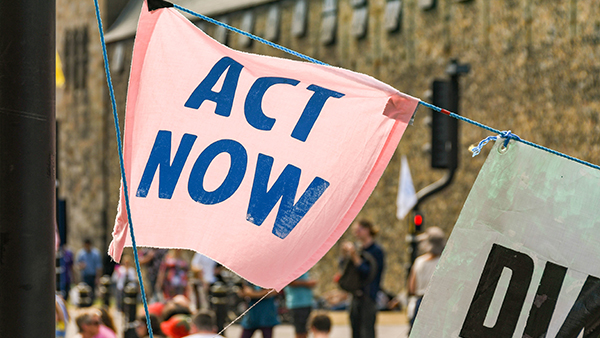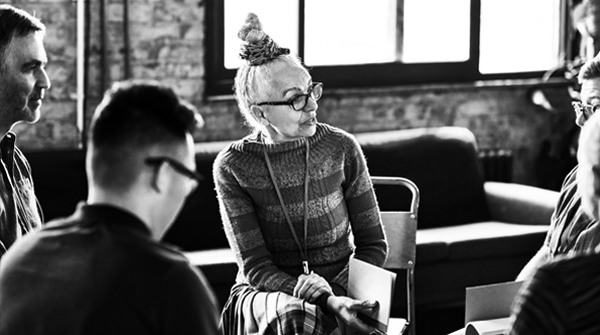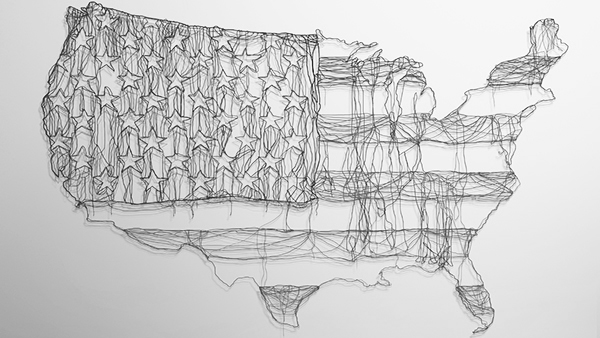Whatever my own increasingly non-aligned sympathies, I can't helping wanting political strategy to make a difference....
Adapting a gag of Stephen Fry's, I sometimes tell audiences that the world is precisely and equally split into people who assert false dichotomies and those who don't. When it comes to election predictions and explanations it also possible - albeit inexactly - to identify two camps.
In one camp there are the determinists, those who argue that election results are the result of big underlying factors and issues that don't quickly change. Different determinists will focus on different things; demography, electoral geography, the paramount importance of leadership perception or economic trust. They tend to share a scepticism about established leaders being able to do much in the short term to overcome these factors.
When it comes to next year's election the determinists are in quandary, for, while one set of factors - electoral geography and living standards - are good for Labour, another set - leadership standing and perceived economic competence strongly favour the Conservatives.
As a one time political strategist I am in the other camp. We are less interested in a static picture of current factors and more in momentum and possibility. We believe that strategies, and the narratives, stunts and policy ideas they involve, can make a difference. We live on tales of sudden shifts in voting intentions resulting from brilliant or disastrous strategy, conveniently ignoring how rare these unexpected turnarounds are. We never completely lose hope. I remember a Labour activist telling me with complete sincerity on polling day in 1992 that Labour was running the Conservatives close in Stratford upon Avon. Danny Finklestein has written wryly about how necessary self-delusion was for him to motivate his efforts for William Hague's 2001 campaign.
Rather than any particularly strong political conviction, wanting to believe my life as a political strategist had some value makes me think it would be interesting if Nick Clegg were to get some kind of conference bounce (although this week's by-election results are hardly encouraging). Also, aggregating various criteria including platform performance, clarity of strategy, courage and candour - the LibDem leader's speech was just about the best creation, and we at the RSA like to believe that human creativity can move mountains.
As I am a soggy centrist and an admirer of leaders who resist the temptation to pander to their Party's prejudices, it was not going to be hard for anyone to beat my assessment of Miliband or Cameron. Even before his speech many commentators spotted that the two main parties by reverting to ideological type had left a nice big space for the LibDems to try to occupy. Taking advantage of that opportunity Clegg duly and reasonably skilfully pitched his tent.
But to the determinists my or anyone else's appraisal of Clegg's performance is of limited salience: Indeed Conservative pollster Andrew Cooper was among those who tweeted to that effect. Their view is that voters made up their minds about the LibDem leader a long time ago. Short of Miliband, Cameron and Farage being found in bed together in a luxury hotel paid for on MPs expenses little will change Clegg's gloomy destiny.
Beyond my insatiable need for self justification there may be one reason - a determinist reason indeed - for Clegg to have hope.
Even though vote loyalty is much less of factor nowadays the major parties can still rely on about 25% of voters to stick with them almost come what may. But as the polls have told us over the last three years, the LibDem hard core is tiny. Most LibDem voters are either Lab/Lib waverers or Tory/Lib waverers.
From the LibDem perspective the pessimistic view is that the former have gone determinedly red in disgust at the Coalition while the latter will be easily swayed by the inevitable Conservative election slogan 'vote Clegg, get Miliband'.
All of which is true. But there is another scenario. Unless things change (and judged by the main Parties' strategies I think this unlikely), voters in the next election will be more powerfully motivated by the result they want to stop than the result they want to see. The respective 'anyone but Miliband' and 'anyone but Cameron' camps are certainly bigger than either Parties' stock of faithful followers. If this is the case Clegg may not need the LibDems to be popular, much less loved. That they are at least partially detoxified may be enough to convince enough people in the seats the LibDems hold and target to vote unenthusiastically for the third party to stop the first or second.
Time will tell whether Nick Clegg started the process of detoxification this week. In politics I believe anything is possible. Which to the determinists is exactly my problem.
Related articles
-
The public are ready to go further and faster on net zero
Anthony Painter
The public are ahead of policy-makers and, indeed, most of the business world. COP26 is an enormous opportunity to catch up. Global leaders should take it.
-
Can progressives ever stop the in-fighting?
Matthew Taylor
Biden's victory has caused the left and moderates to fracture again.
-
Can President Biden bring America together again?
Anthony Painter
There is a long road ahead for the new president.




Be the first to write a comment
Comments
Please login to post a comment or reply
Don't have an account? Click here to register.